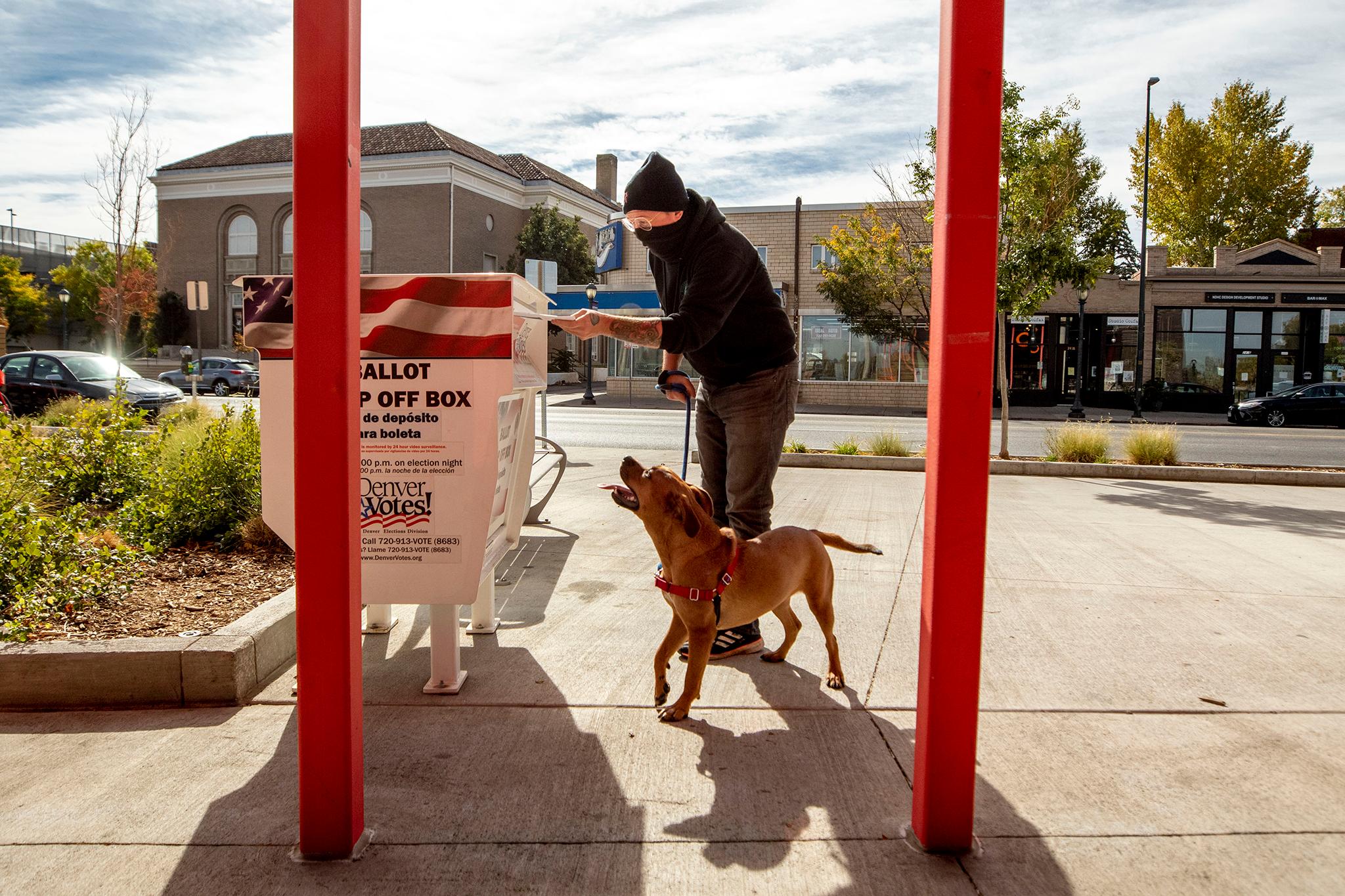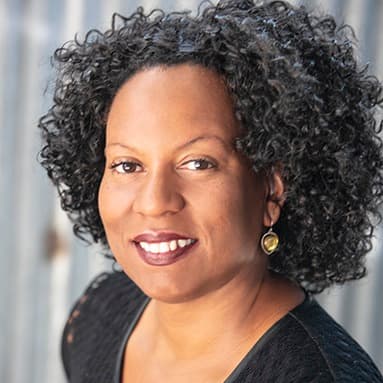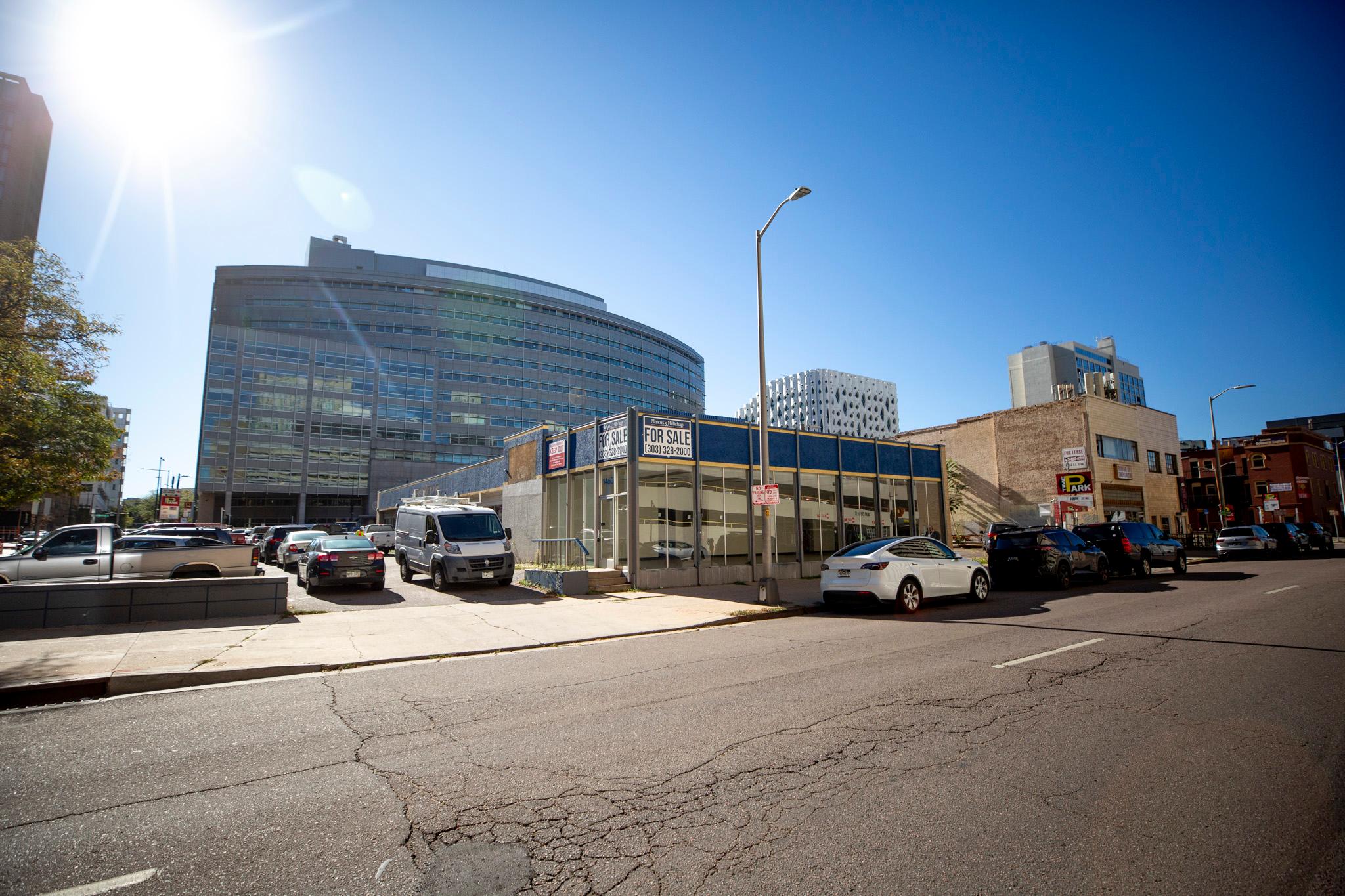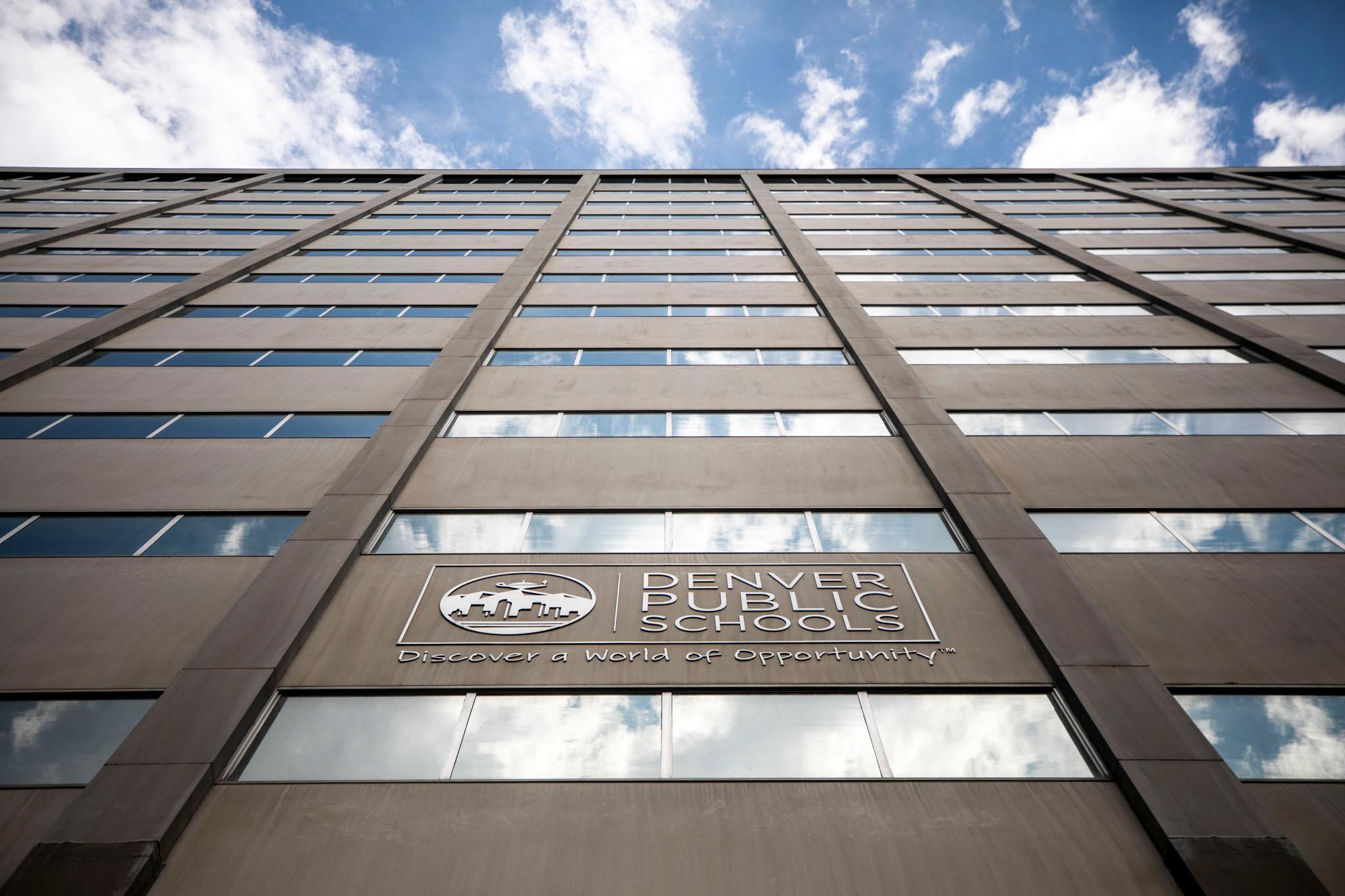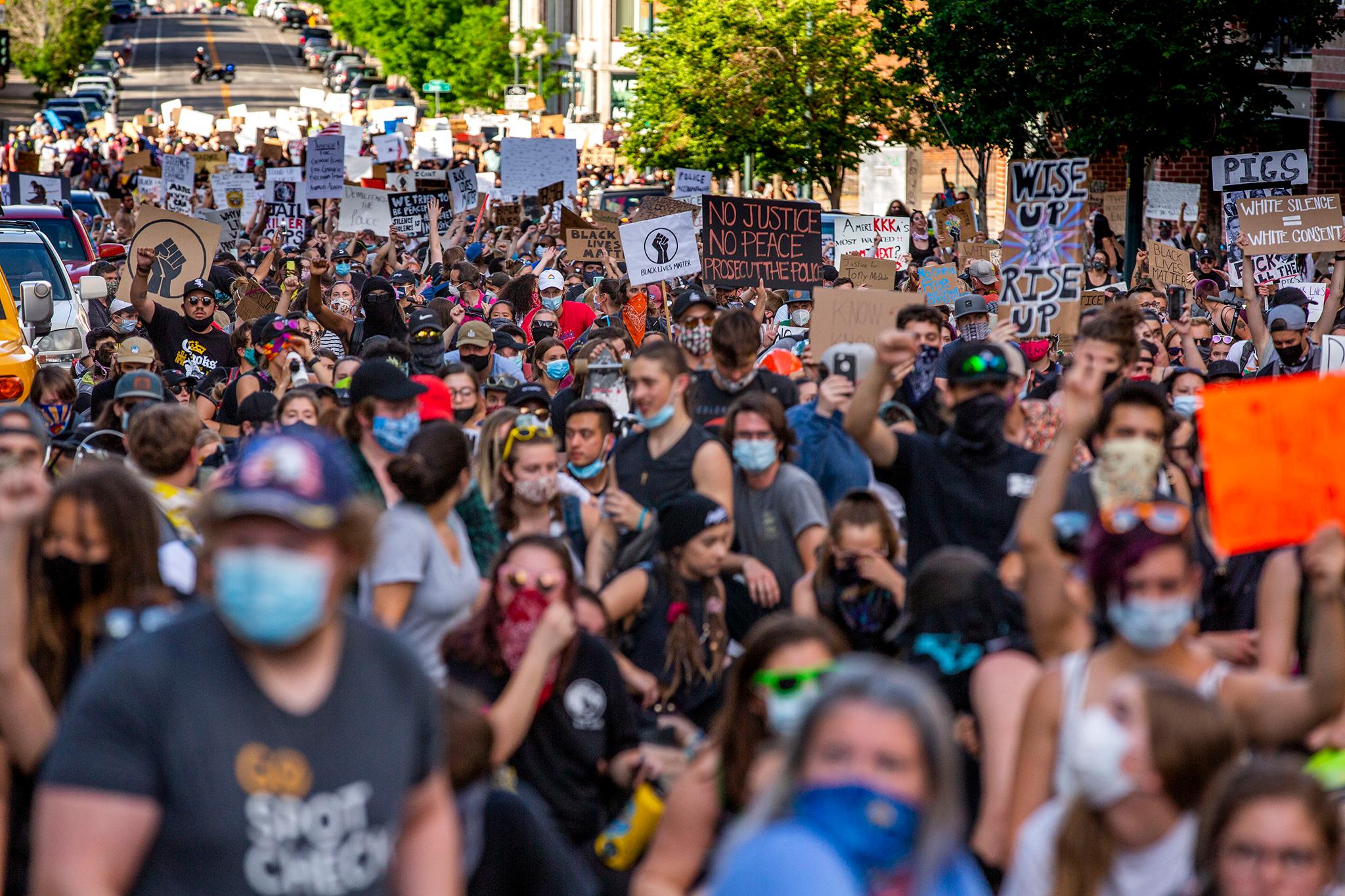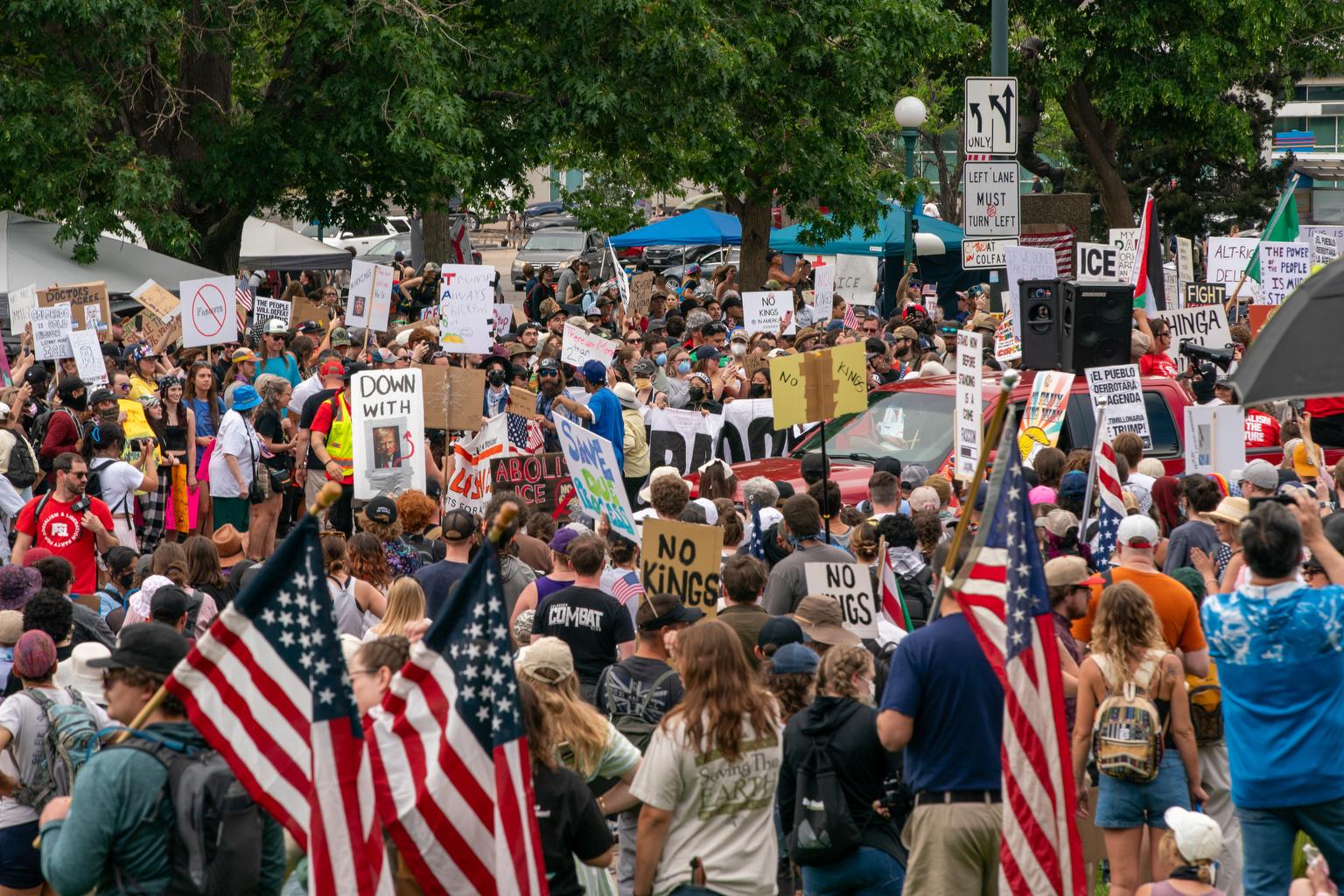After interviewing 100 Denver residents from neighborhoods and communities across the city about what they want to see from candidates, we have a lot on our mind: affordability, crime, education, the environment, health and wellness, transportation and a mistrust in government.
Yet apathy won mightily in the primary election in Denver Tuesday, after nearly 82% of registered voters didn't cast a ballot.
Perhaps that's because the ballots were a little snoozy for Denverites -- especially for residents, affiliated and unaffiliated alike, who vote Democratic. They make up the majority of Denver voters and didn't have many choices in most districts.
Even so, 46,756 out of 151,882 registered Democrats, 23,145 out of 174,787 unaffiliated voters, and 9,925 out of 35,346 Republicans voted in the city.
Coming out of primary season and into the general election, we will begin to get a better picture of how candidates approach the issues that matter to Denver -- many of which have not been addressed, particularly by Democrats in safe seats.
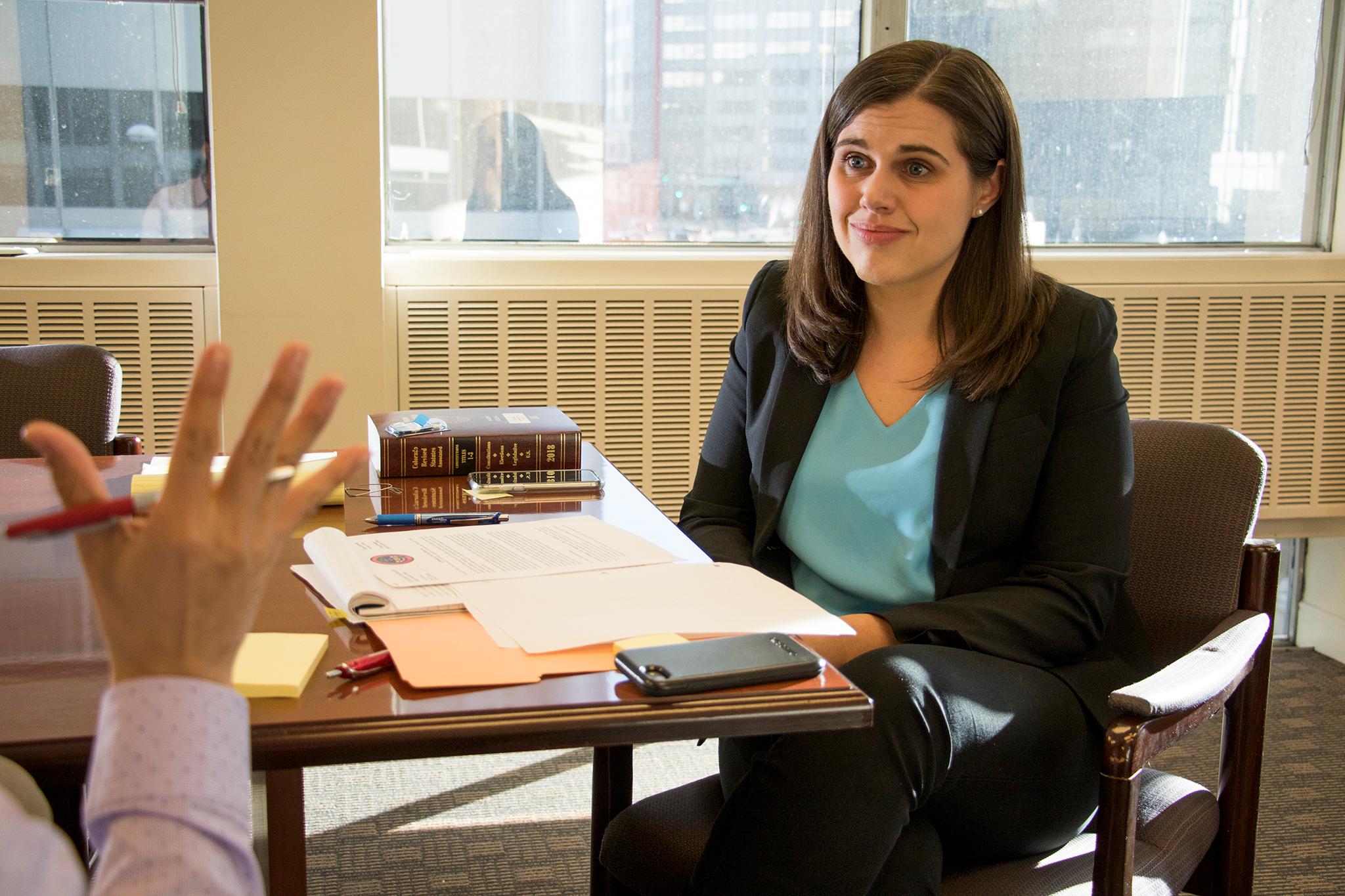
The list of uncontested Democratic candidates in federal and state races who have yet to speak to matters of concern to the city is long. Senator Michael Bennet, Representative Jason Crow, Governor Jared Polis, Secretary of State Jena Griswold, State Treasurer Dave Young, Attorney General Phil Weiser, State Board of Education members Kathy Plomer and Rebecca McClellan all ran without competitors.
In District 1, Neal Walia ran left of longtime incumbent Diana DeGette, but unseating the stalwart U.S. representative was a long shot, and it didn't work out. She's been reelected again and again since she first took office in 1997, and it's unlikely anyone else will hold that seat unless she departs. Her campaign was fairly quiet, outside of addressing guns and abortion in her current work as a representative.
Republicans had more primary picks at the federal and state levels, including a number of far-right candidates. But voters in statewide GOP races advanced mostly moderates -- a relief for the party establishment who watched their chances of winning in Colorado shrivel in the extreme-right Trump years. Candidates who cast the most doubt on the 2020 election lost.
This was a nothing-burger statehouse race for most Denver voters.
People voting on a Democratic ballot had just a single pick in all but House District 6. Republicans ran uncontested in every district but two, where there were no GOP candidates.
So in most of the city, there was neither much of a policy debate nor an accounting for how incumbents have represented Denver and its people's concerns.

If you live in District 6, your door might be scarred from knocking and your mailbox might be flooded with ads in the Democratic race between Elisabeth Epps and Katie March -- the only competitive statehouse race in Denver, a fight between two self-avowed progressives.
As of Tuesday night, the Epps-March race was too close to call, with March receiving 6,249 votes and Epps receiving 6,215 -- a difference of just 34 votes. Another count will be announced at 5 p.m. Wednesday.
In the district, 43,744 registered voters skipped participating in the primary, while just 13,056 decided to use their vote. The heated campaign only led to slightly greater turnout than the rest of the city, suggesting most people aren't that invested in local races, where major policies that affect them are decided.
The split between Epps and March mirrors tensions in Denver. In response to police killings and brutality, the city has been paying millions in excessive-force settlements, and some, including Epps, have called for the abolition of the police and prison system altogether. But crime is also on the rise, and some Democrats are crying for more cops and arrests.
March, a historian who has worked for the Democratic caucus in the statehouse, has less of a public-facing track record than Epps, who has been an outspoken activist championing incarcerated people for years. Despite less name recognition coming into the election, March has been backed by establishment Democrats and would likely back the party's ongoing policy priorities. Epps ran a grassroots race with less funding.
The tensions between the candidates on criminal justice issues put Democrats, who need to win against tough-on-crime conservatives, in a bind. Do they risk losing unaffiliated centrists who might gravitate toward a law-and-order Republican? Or do they risk losing the base of the party's abolitionist elements?
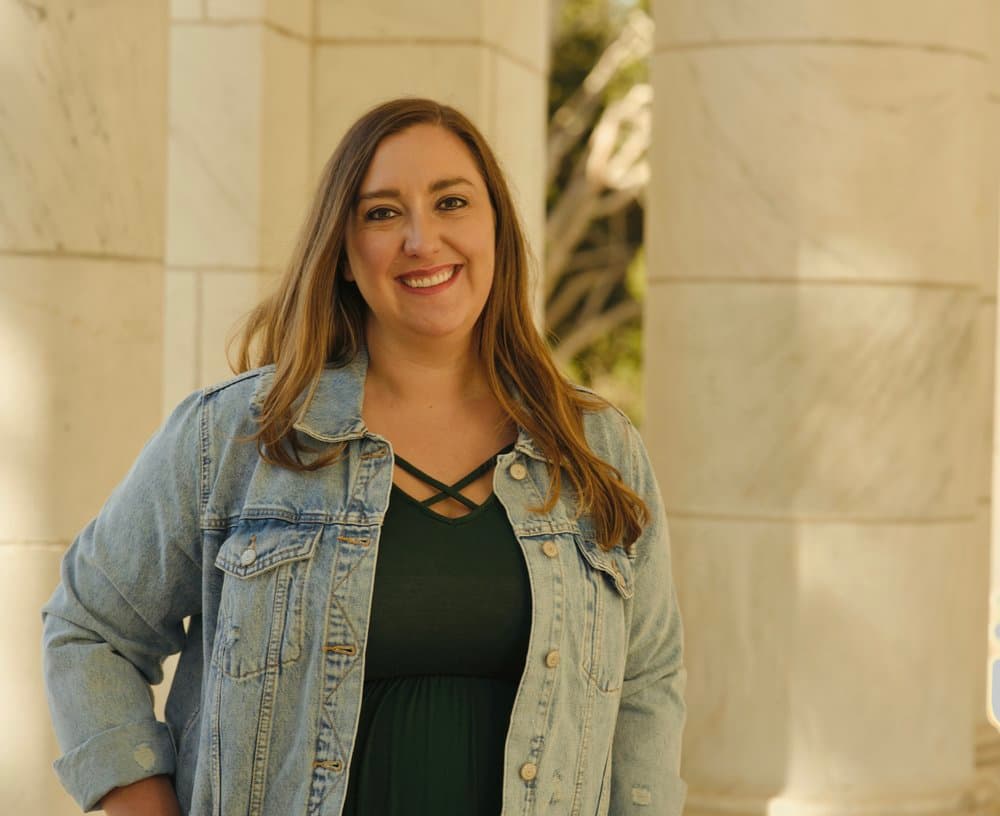
In HD-6, the Democratic establishment threw its money into a lesser-known, more moderate candidate. Democrats statewide have been quietly distancing themselves from the racial justice protest movement that dominated headlines and filled the streets in the summer of 2020, after the police murder of George Floyd. Epps's legacy is tied to that protest movement, and her victory would ensure it had a voice at the statehouse.
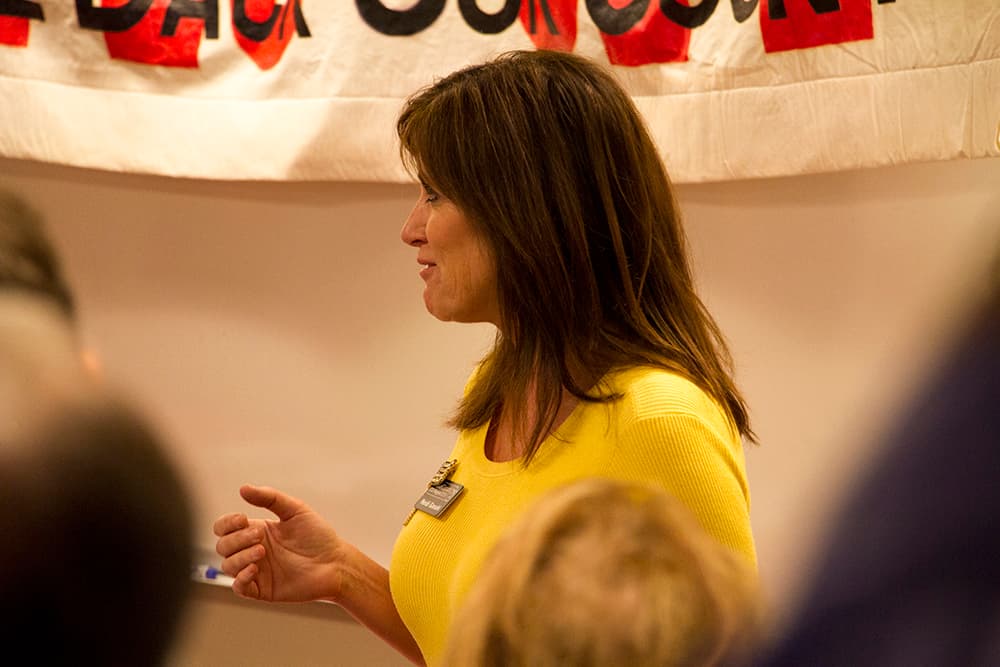
In statewide races, the center held even stronger for both parties.
Both the Democratic and Republican establishments often argue that to win statewide races in Colorado, you have to cleave to the middle. Electing such candidates has proven tough in primaries when the grassroots base of the Republican Party pushed toward the far right in the Trump era and the grassroots base of the Democratic Party pushed toward the far left.
But centrist logic played out with both Democratic and Republican nominees for governor: Democratic incumbent Jared Polis and Heidi Ganahl, the more moderate of the two GOP candidates. The same held true in the Secretary of State race, where former Jefferson County Clerk Pam Anderson beat embattled and indicted Mesa County Clerk Tina Peters. And also in the Senate race, where more moderate candidate Joe O'Dea beat right-leaning Ron Hanks.
Polis is a centrist with a libertarian streak who has shot down measures akin to rent control, but has used government funding and programs to address economic and health issues, by supporting government-funded programs.
His environmental record is mixed. While he has championed some reforms and a push to move the state away from fossil fuels, he has also delayed some environmental regulations, in an effort to keep businesses running -- a sore spot with environmental activists.
Nobody from the left-wing of the party decided to try to primary Polis, which was probably a good use of their money and time. His incumbency and deep pockets would make beating him an extremely tough and pricy proposition.
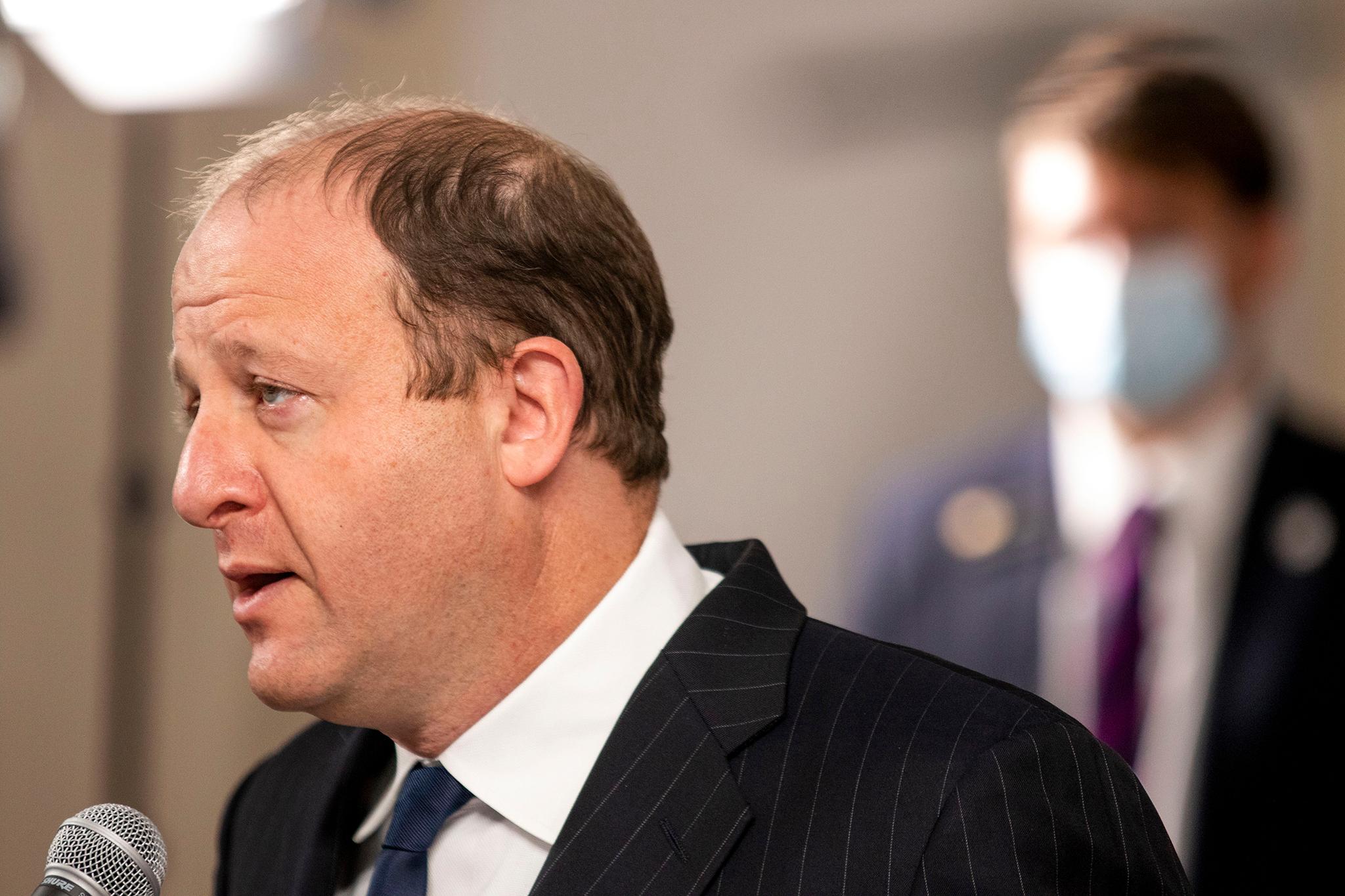
Ganahl beat Greg Lopez, a more socially conservative candidate, in the primary -- one that received hundreds of thousands in funding from groups with Democratic ties betting he'd be easier to beat. Lopez also came with scandal, including a domestic violence incident and a DUI.
Both Polis and Ganahl embrace free-market capitalism and take tough-on-crime positions. Both have the full endorsement of their party establishments.
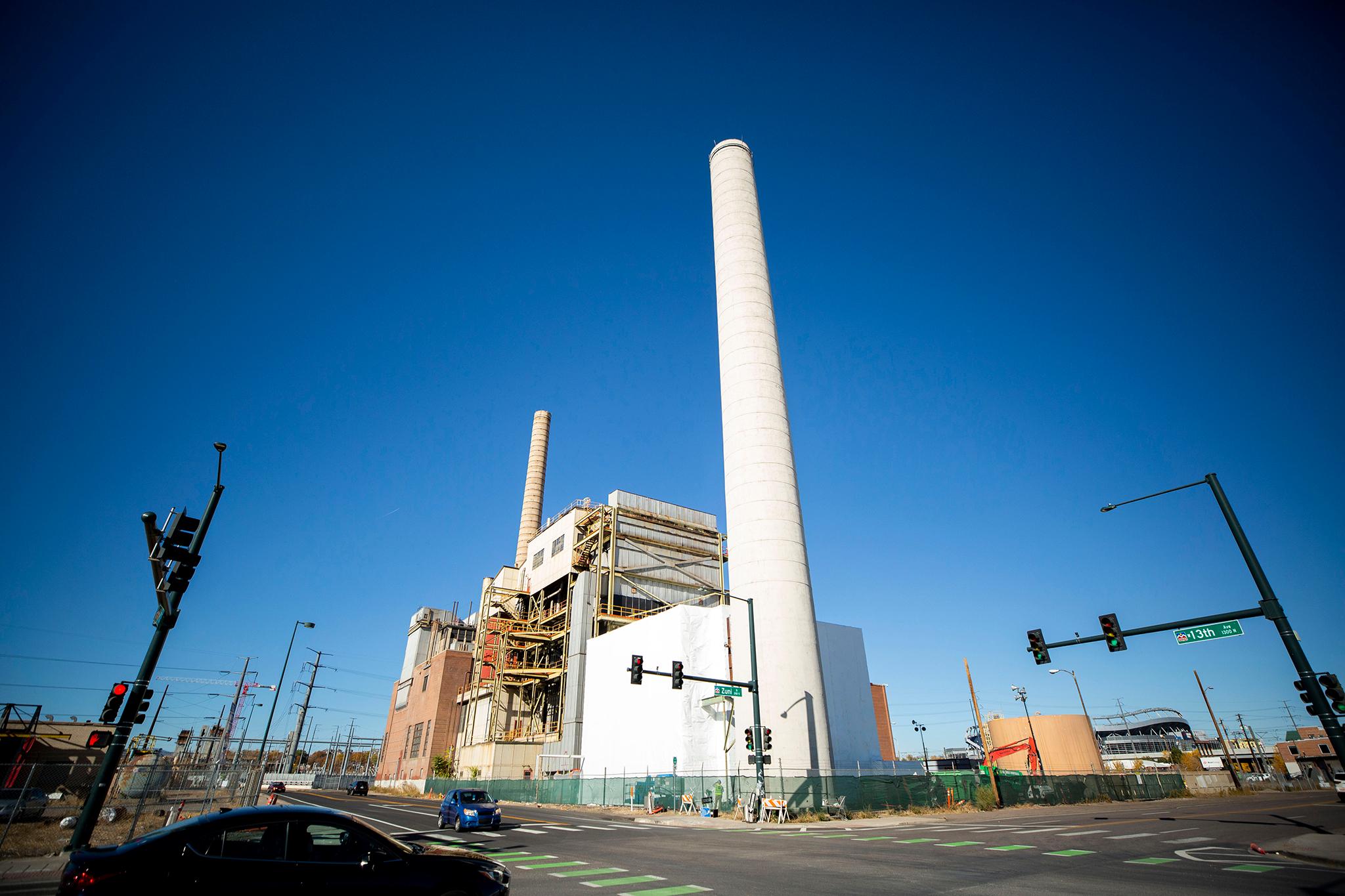
O'Dea, Bennet, Polis and Ganahl differ on social issues like abortion, gun safety and regulation, environmental issues, energy policy and the function of government.
Ganahl's a proponent of coal and natural gas and believes Polis's plan to shift away from fossil fuels is happening too fast. While Polis has invested state money in mental health, education and housing relief, Ganahl believes it's more effective to address these issues by finding efficiencies, deregulating businesses and shrinking government.
For months, Ganahl has been meeting with Denver voters who are frustrated with the rise in crime and homelessness in the city. They believe Polis's administration is partly to blame.
But Polis and the Democratic Party, through their support of a recent statewide fentanyl bill, have been getting ahead of those criticisms. They have doubled down on tough-on-crime policies, like turning fentanyl possession into a felony, often at the expense of longtime allies in the harm-reduction movement, who would prefer treating drug use as a medical issue, not a crime. His administration has also signed into law major funding for mental healthcare and early childhood education.
Voters will have plenty of distinct policies from the Republican and Democratic candidates to debate as they weigh the future of the state.
Should government play a role in solving issues like affordability, crime, education, health, transportation, and the environment, and if so, how? What regulations should (or shouldn't) be imposed on companies big and small, as they figure out how to contribute to these issues? How should government regulate guns and medical procedures like abortion and the healthcare industry? Should wages increase, and if so, how? How do these leaders plan to fix the problems that Denver voters see -- if at all?
In a city that has voted nearly entirely blue in recent years, the Democratic Party and Senator Bennet and Governor Polis have a lot to explain in how they have managed the issues Denverites care about and what steps they would take if elected. To win in the general election, Republicans would have to prove their vision of less government and more privatization, when it comes to housing, the environment, transportation, healthcare and other issues, would adequately address what residents see as a variety of crises making life in Denver tough.

